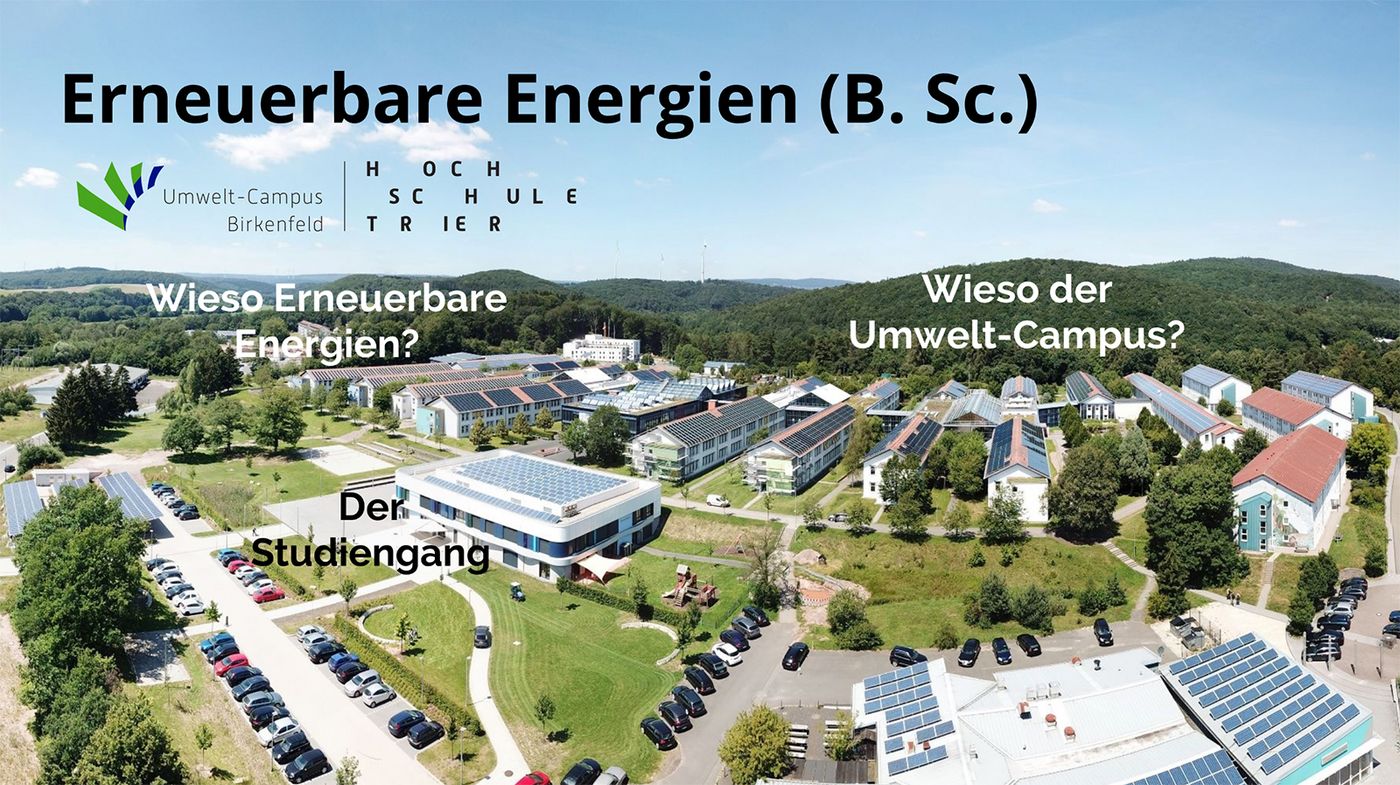
Please note: Information will be sent to Youtube/Google as soon as you start the video. For further information visit Google Privacy.
The programme is intended to enable graduates to obtain a Bachelor of Science as their first scientific degree qualifying them for a profession and is the prerequisite for a Master's programme in the fields of industrial engineering, energy, engineering or economics.
The aim of the course is to train industrial engineers to structure industry and the energy sector in terms of sustainable development on the basis of interdisciplinary thinking. The aim of the programme is to provide graduates with the essential engineering and economic basic qualifications in a relatively short course of study qualifying them for a profession. Elective courses offer the opportunity to further supplement and deepen this knowledge or to acquire a broader qualification profile through other thematic courses.
The Bachelor's programme aims to provide an overview of the fundamental interrelationships in the renewable energy sector, to apply the acquired knowledge in the professional field and to be able to independently familiarise oneself with new tasks.
A special feature of the programme is that both departments at the Environmental Campus - Environmental Planning/Environmental Technology and Environmental Economics/Environmental Law - are responsible for the programme. This ensures that you will be intensively prepared for your future tasks by professors from both departments during your studies.
Remark: The lectures of this programme are only in German. If you are interested in our English programme, have a look at "Sustainable Business and Technology".
The bachelor's degree program in renewable energies. https://youtu.be/pt8pJ9AJKuM
The course of study. https://youtu.be/t1SENaZ0WbE
The practical orientation of the study program. https://youtu.be/ZV-Emjxbzo4
Requirements for the study program. https://youtu.be/OFVSvxh0pD4
The career prospects. https://youtu.be/_tVY-e6Iw1Y
The Environmental Campus Birkenfeld. https://youtu.be/YMiLxotsu9U
The Campus as a Lab. https://youtu.be/ZT1QtI1br70
Living on campus. https://youtu.be/KHwMFySq6Xk
The Green Campus concept. https://youtu.be/gImdaXcYNv8
The bachelor degree program "Renewable Energy" integrates with numerous Sustainable Development Goals (SDGs). In particular, the program promotes the following SDGs.
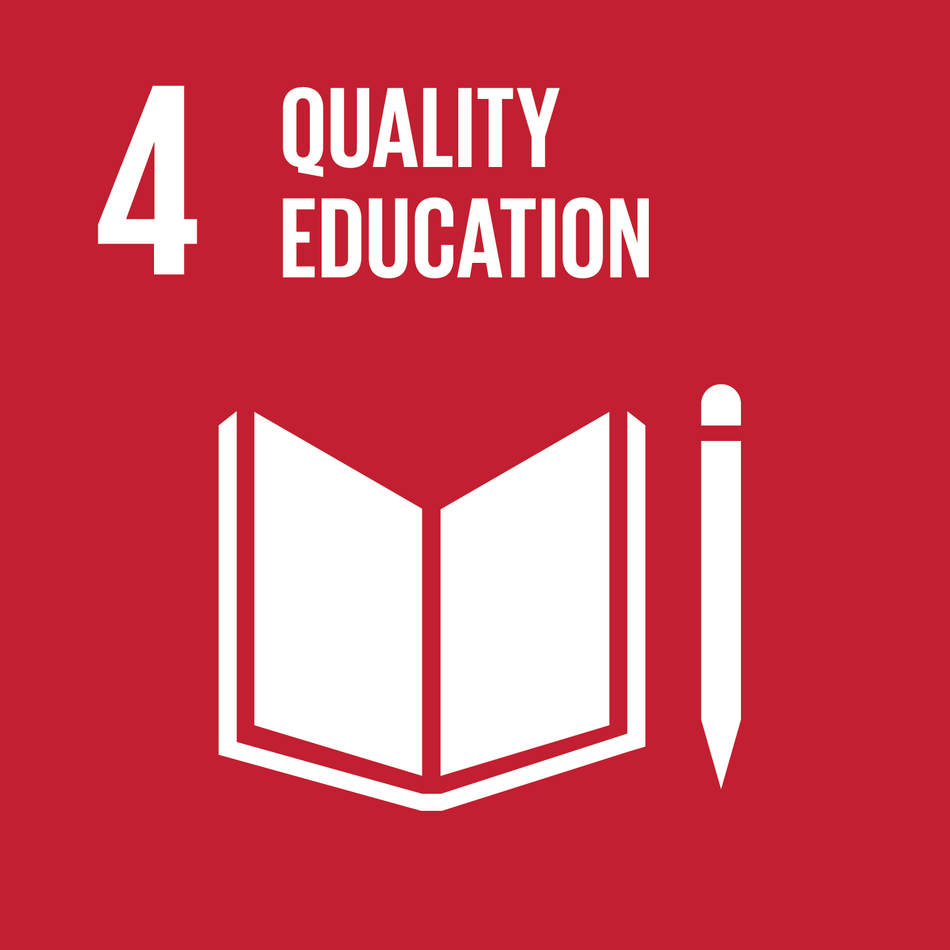
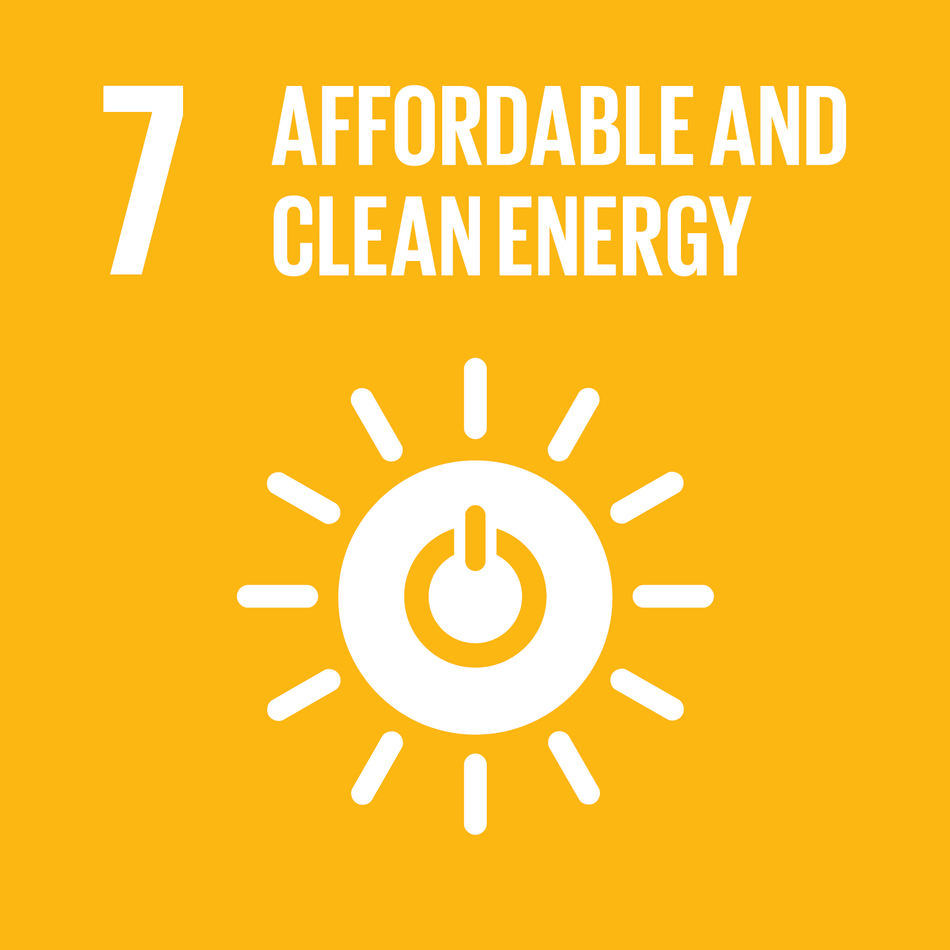
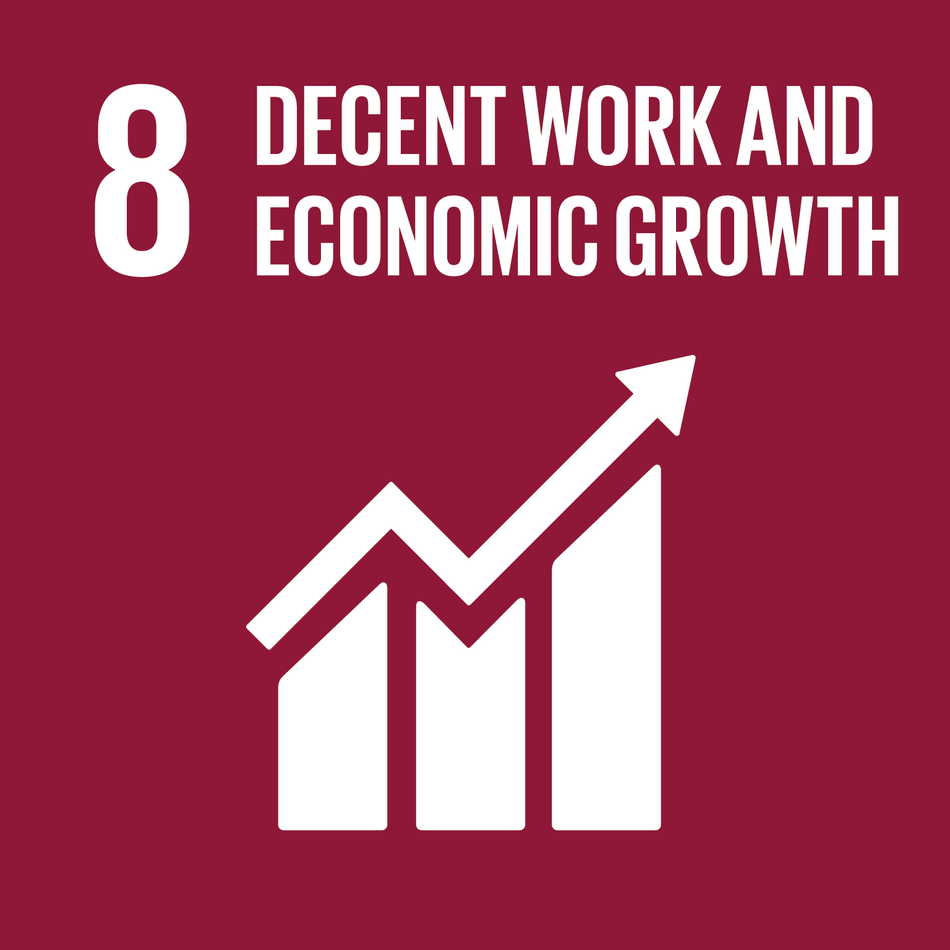
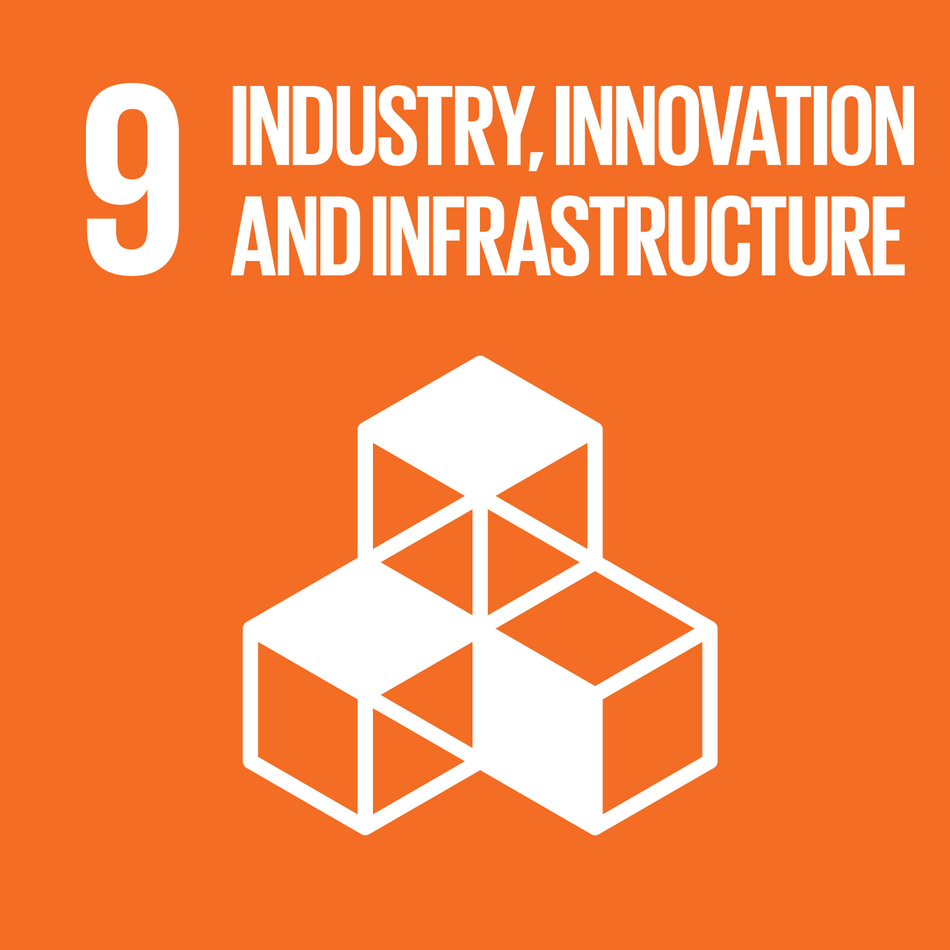
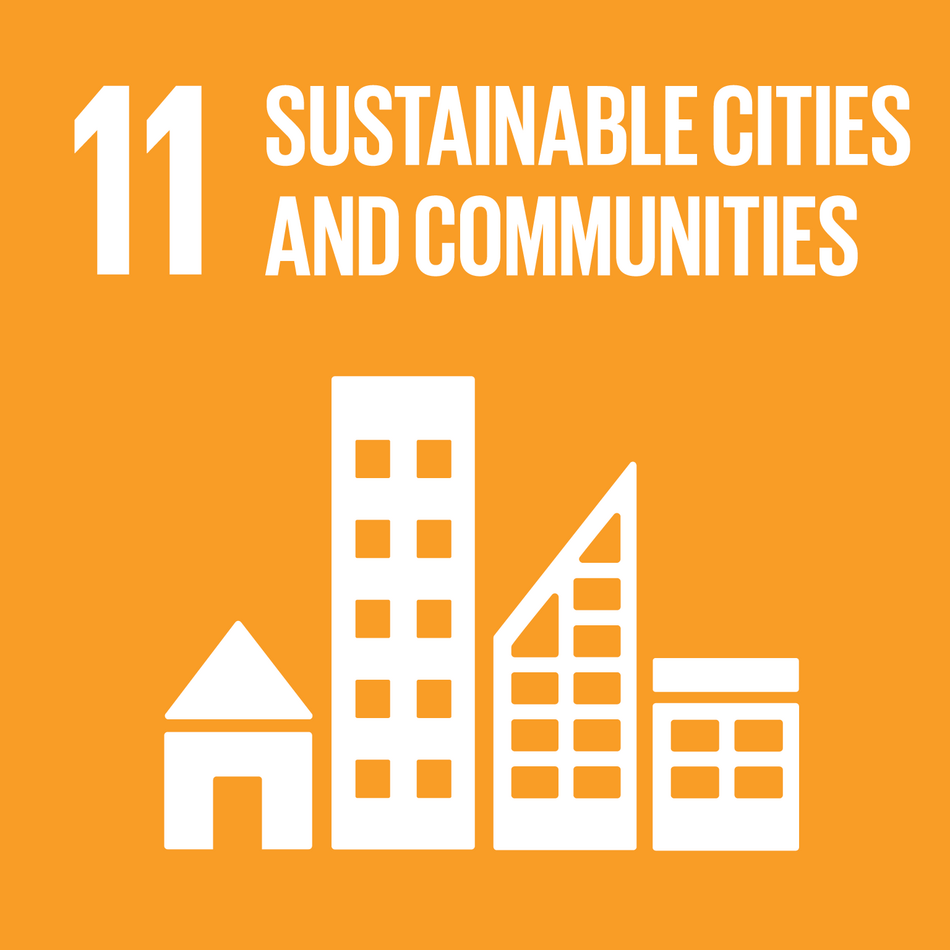
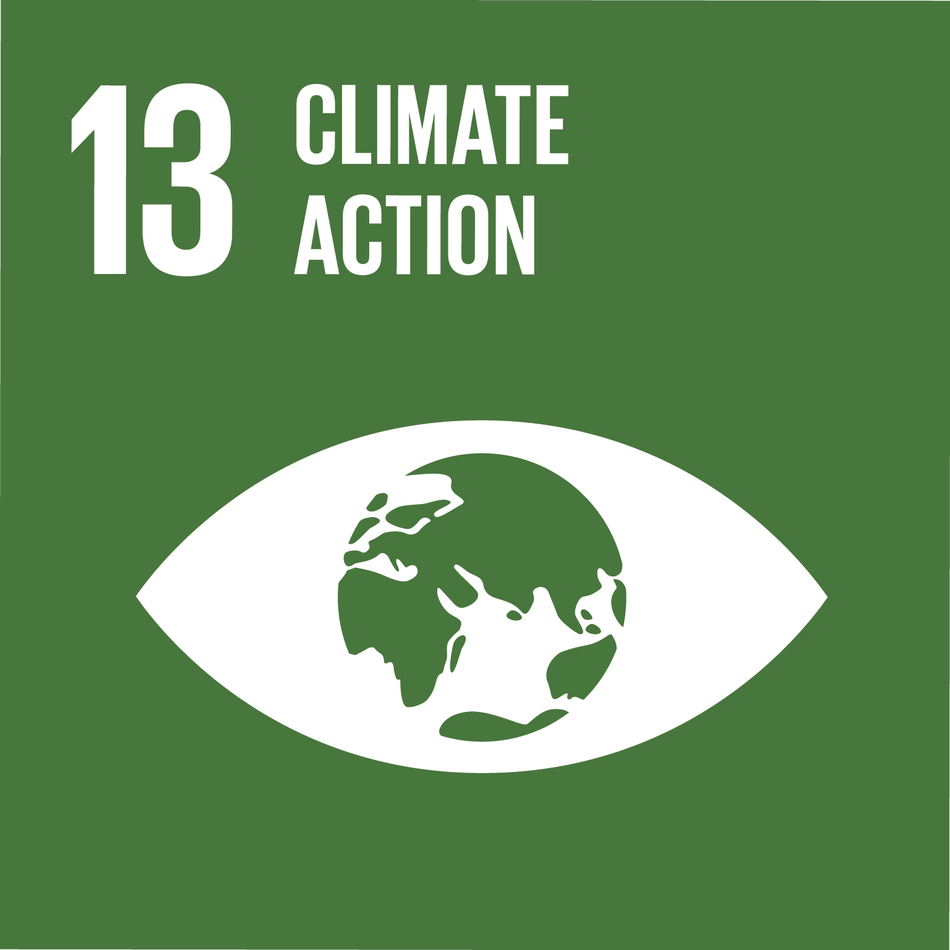
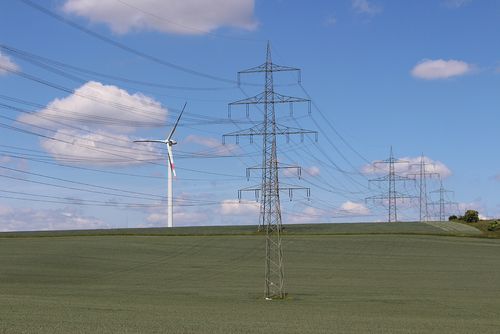
Renewable energy systems have been playing an increasingly important role in energy supply in Germany and globally for some years now. In Germany, wind, photovoltaics, hydropower, and bioenergy now cover more than 40 % of electricity requirements (source: Renewable Energies Information Portal). Investments in the new installation of renewable power plants are increasing worldwide, driven in particular by the energy turnaround in Germany (source: REN21 Renewables 2016 Global Status Report). Since 2012, the annual global increase in renewable energy plants has been greater than the increase in fossil fuels (source: IRENA. Rethinking Energy 2014).
Due to continuously decreasing electricity production costs from renewable energy systems (source: Fraunhofer Institute for Solar Energy Systems). The investment in these systems will remain economically attractive in the long term (source: Fraunhofer Institute for Solar Energy Systems). And because of the globalisation of the renewable energy sector, renewable energies will remain a highly interesting sector with very good prospects for the future.
In Germany, we now operate an installed capacity of more than 90 GW of renewable energy systems, in particular photovoltaic and wind power plants. Nevertheless, we still face major challenges in reducing greenhouse gas emissions. In order to ensure both the operation of existing systems and the conversion and optimisation of energy supply in the areas of electricity, heat and transport, we are constantly looking for well-trained university graduates who can find solutions to the energy technology and energy policy issues of our time.
The bachelor programme "Renewable Energies" is a programme of studies which you complete as an industrial engineer. The advantage of an industrial engineer is that you receive a broad and general education in the fields of technology, economics and law with a focus on renewable energy systems. We have deliberately refrained from too much specialisation in the Bachelor's programme, as we believe it is more important for your future life that you first acquire basic knowledge of the essential interrelationships of renewables. After completing your bachelor's degree, you can aim for a focus by taking up a corresponding master's degree. Due to the broad-based course of studies, all paths are open to you without restrictions.
A great interest in mathematical and scientific contexts is important for the Renewable Energies programme. It is therefore helpful if you study mathematics and physics during your school years until you graduate. Good language skills in German and English are also irreplaceable if you want to pass on your knowledge to others later. Furthermore, subjects such as biology, geography and politics are helpful for the course of studies in order to already have the basics for the lectures in the first semesters.
There are several reasons to come to the Environmental Campus to study Renewable Energies:
1. Personal: Around 2,300 students are currently studying at the Umwelt-Campus. As a result, the campus, unlike "mass universities", has a rather family atmosphere with direct contact to the professors from the first semester onwards. You do not disappear into the anonymity of the large number of students, but you have the opportunity to intensively experience their studies in small groups early in their studies.
2. Campus feeling: Due to its history as a former military hospital of the US armed forces up to the 1970s, the campus is embedded in a unique natural landscape. 750 dormitory rooms on the campus allow you to enjoy student life at the university location. And thanks to the Neubrücke train station and direct motorway access, you can get to Saarbrücken, Kaiserslautern, Trier or Mainz/Frankfurt rather fast.
3. Practice-oriented: Eight institutes and five competence centres on the Environmental Campus offer you broad, application-oriented research with a focus on sustainable development. The supervision of the projects and the bachelor thesis in the laboratories and institutes ensures close supervision by the professors. And the campus itself is also used as a laboratory due to its various technical facilities (photovoltaic system, modern technical building equipment, zero-energy building, etc.).
4. Sustainable: The Environmental Campus is the only zero-emission campus in the world, as we obtain our electricity and heat entirely from renewable energy sources through the photovoltaic system on the campus roofs and from the biomass cogeneration plant of the OIE. We also attach great importance to teaching you the concept of sustainable action during your courses.
5. Leisure: There is a wide range of leisure activities on campus and in the surrounding area. Various sports facilities (beach volleyball, basketball, football, tennis, fitness room, modern sports hall) and other activities (barbecue hut, student pub Kadu) are available directly on the campus. The surrounding countryside also offers a wide range of leisure activities, such as the Bostalsee or Erbeskopf lake.
6. Close to nature: Due to its location, the environmental campus is integrated into the natural environment. The "Hunsrück-Hochwald" National Park in particular offers a broad spectrum of experiences in nature.
7. International: We offer students from European and non-European countries a wide range of opportunities to study on campus. In addition to two one-semester study programs and an international master program, an English-language bachelor program "Sustainable Business and Technology" will start in the winter semester 2017/18. This will give you access to students from all over the world on campus, with whom you can exchange ideas during your studies and in your free time. You can also go to one of the many partner universities abroad as part of your studies in order to expand your personal experience by spending a semester abroad.
After successfully completing your studies, you have a wide range of options. On the one hand, you can study for a Master's degree at the Umwelt-Campus or at another university. We offer the following selection of engineering or business administration master's courses:
You can also start your career with a Bachelor's degree. The professional fields of industrial engineers are diverse from a technical, economic and legal point of view due to their broad training in the use of renewable energy systems and the efficient use of energy.
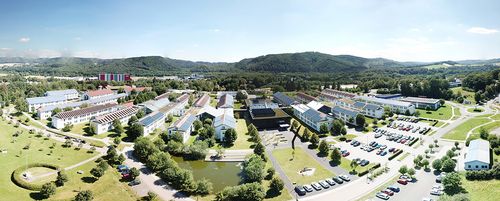
If you are interested in the course of studies "Renewable Energies" at the Umwelt-Campus, but are still unsure whether the studies are the right decision and the Umwelt-Campus is the ideal choice, then you can inform yourself in various ways. The introductory presentation provides further information on the "Renewable Energies" course.
The first step is to get to know the campus and the study programme during the Info Day or Open Day. Usually in February, the Info Day offers an extensive information programme for pupils, but also for parents and teachers. On the open day you will have the opportunity to take part in taster lectures and to visit the various laboratories.
During the school holidays, individual research groups on the Environmental Campus offer several-day school holiday courses. For example, they can study 3D printing, programming smartphone apps or LEGO Mindstorms, or renewable energy systems. The summer courses give you the opportunity to get in direct contact with the professors and assistants on campus and to get an introduction to the practical application of technical questions.
And finally, there is the taster course at the Environmental Campus. You can stay on campus for up to a week, attend lectures, take part in student activities and eat in the refectory in order to gain a first insight into life as a student.
The Study Service has propared all further information about the Environmental Campus and the start of your programme for you.
Reminder: The bachelor programme "Renewable Energies" is in German, not in English. Thus, the programme is only suitable for students with profund knowledge of the German language.
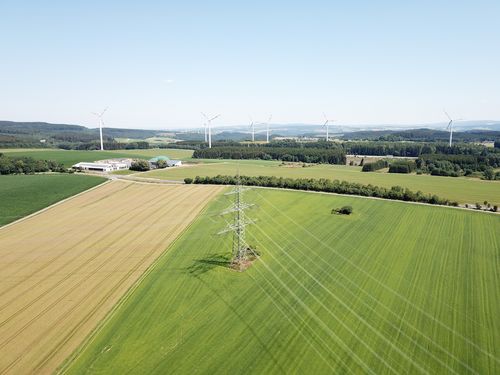
1. Teaching basics
During the first two semesters you will get to know the basics of mathematics and science, business administration and law. These basic subjects are essential in order to understand the structure and function of renewable energy systems later on.
2. Deepening specialist knowledge
After you have successfully mastered your first semesters, you will deepen your knowledge in subject-specific modules. The focus of the course is on wind energy, photovoltaics and bioenergy - the three main renewable energy production systems in Germany. The concept behind the courses is that you will have preparatory lectures and seminars before the in-depth module in order to derive maximum benefit from the modules.
The modules "Thermodynamics/Flow Mechanics/Physical Chemie" and "Fundamentals of Mechanics and Machine Elements" form the basis for the advanced module Wind Energy in the 3rd semester. The courses Applied Electrical Engineering and Technical English serve as preparation for the advanced module Solar Energy in the 4th semester. Finally, the modules Energy Technology and Thermodynamics are the basis for the advanced course Bioenergy in the 5th semester.
Further technical and economic in-depth modules such as grid technology and electromobility, immission control, business model development, regional energy concepts, etc. are also offered.
We have deliberately integrated an English-language module into the course - Solar Energy. In addition to expanding your knowledge of English at school, you will be taught knowledge of the energetic use of the sun in English through the "Technical English" module in the first semester. Since the job description of (industrial) engineers is increasingly characterised by internationalisation, it is necessary for you to be able to exchange technical information with third parties, especially in English.
3. Specialisation
From the third semester onwards, four compulsory electives and two projects give you the opportunity to specialise in the context of your studies and to deepen your knowledge in individual subject areas. You can choose from a wide range of technical and business subjects to broaden your knowledge.
In the project work, you will work in an interdisciplinary team of students on a task, which you will solve and finally present independently under the guidance of a professor. Frequently, the project work deals with questions from the economy, so that your results are very valuable for the companies.
The specialisation phase usually forms the basis for the final phase of your studies, as you can lay the foundation for your thesis by selecting your elective subjects and the project work.
4. Completion of your studies
The sixth semester is divided into the practical study phase and the writing of the bachelor's thesis. During the twelve-week practical phase, you will complete another internship in a company. In contrast to the basic and specialist internships, you are now in the final phase of your studies and have extensive technical, business and legal knowledge that you will apply in the company. For this purpose, you will work on a small task embedded in a specialist department and develop solution concepts.
Your bachelor's thesis is the final phase of your bachelor's programme. You should independently work on a practical problem from a scientific point of view and finally present the results. You will often write your thesis in the same company in which you have already completed the practical study phase. This will allow you to delve even deeper into the subject area and work out further results. You will be supported throughout the course by a professor at the university, who will provide you with advice and practical support. The thesis is completed by the colloquium - the "defense" of your thesis before your supervising professor.
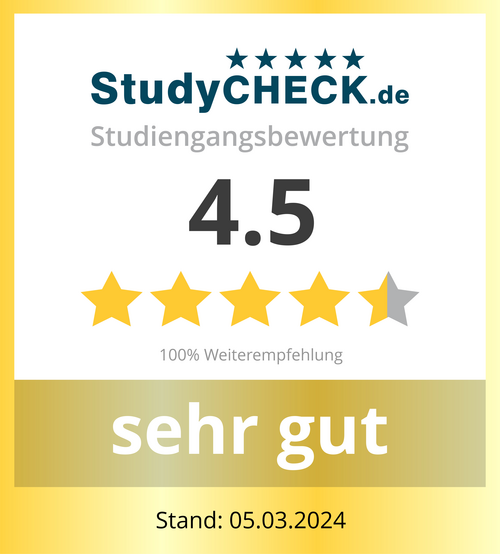
Evaluation of the study program Renewable Energy (B.Sc.) at StudyCHECK.de. Rating status: 05.03.2024
Degree
Bachelor of Science (B.Sc.)
Beginning of the course
winter and summer semester
Language of courses
German. Profund knowledge of the Germany language is absolute necessary to join the bachelor programme.
Standard period of study
6 semesters (180 ECTS)
Admission restriction (N.C.)
none
Place of study
Environmental Campus Birkenfeld
Practice
Basic internship (8 weeks), specialised internship (4 weeks, internship semester (12 weeks)
Internationality
Semester abroad (voluntary)
Tuition fee
none (only semester fee)
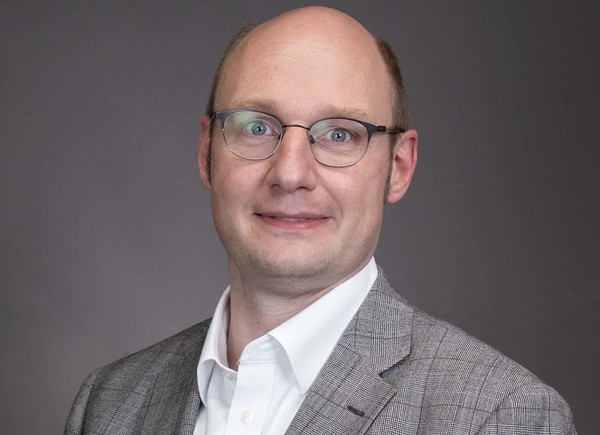
You are leaving the official website of Trier University of Applied Sciences